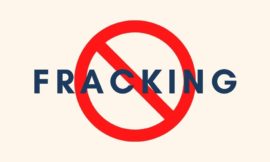The Inflation Reduction Act was recently signed into law by President Joe Biden so we wanted to break down how this bill could affect mineral and royalty owners and future oil and gas development.
Be sure to also subscribe on Apple Podcasts via the link above and please leave us a rating and review. We read every one of them and sincerely appreciate any feedback you have. To ask us a question to be featured on an upcoming episode, please leave a comment below or send an email to feedback@mineralrightspodcast.com.
The Inflation Reduction Act recently passed the senate and is expected to pass the house vote on Friday August 12th so we wanted to break down how this bill is going to affect mineral and royalty owners.
What is the Inflation Reduction Act?
Basically, this is a watered-down version of the Build Back Better Act which failed to make it through the senate last year with a whopping $1.75 trillion price tag. Senator Joe Manchin was the key Democratic senator opposed to that much spending so we can certainly thank him for standing up for that and for standing up for his constituents which happen to rely heavily on the oil and gas and coal mining industries in West Virginia.
In a nutshell, the bill will cost around $740 billion with $369 billion in climate and clean energy policies, such as providing incentives for renewable energy, hydrogen, nuclear, and electric vehicles. It also includes $60 billion for what they call environmental justice.
How Will the Inflation Reduction Act Effect the Economy?
To answer that question we took a look at the analysis performed on the Senate provisions in the Inflation Reduction Act. It is possible that the house may make additional changes before approving this but given the Democratic majority there I would expect it to remain largely unchanged.
The analysis performed by the Tax Foundation estimates that the “Inflation Reduction Act would reduce long-run economic output by about 0.1 percent and eliminate about 30,000 full-time equivalent jobs in the US”. And despite claims to the contrary their analysis indicates that “it would reduce average after-tax incomes for taxpayers across every income quintile over the long run.”
The good thing is there are some positive economic effects in terms of an estimated “$178 billion reduction in the deficit. . .during the first decade.”
So what are the impacts on inflation? The Tax Foundation also mentions in their analysis that “By reducing long-run economic growth, the bill worsens inflation by constraining the productive capacity of the economy.”
How Will the Inflation Reduction Act Impact Mineral and Royalty Owners?
The Inflation Reduction Act is important for mineral and royalty owners because certain provisions of this legislation will affect oil and gas development on federal lands and it will affect the economics of oil and gas projects.
How the Inflation Reduction Act Affects Oil & Gas
Positives:
- Requires that the BLM continue to hold federal oil and gas lease sales in conjunction with any new plans for wind or solar projects on federal land – requires new oil and gas lease sales each year for 10 years before installing new solar/wind energy projects.
- This is important for mineral owners in the West who might own mineral rights near federal minerals. Since both private minerals and federal minerals can be pooled together to form federal drilling units, providing a path forward for federal leasing of these lands stands to benefit private mineral owners who are affected. Of course federal permits require more extensive environmental reviews which can take time so it is not a sure thing but will certainly help unlock these minerals to the possibility of future development.
- Rewards companies for investing in carbon capture technology with tax credits. This would allow existing base load power plants that burn gas or coal to remain open if they utilize this technology. The act increases the 45Q tax credit to $85 per ton and decreases the size requirement for projects to qualify for the credit. They also are changing the way the tax credit is paid to companies which will be more beneficial. It also creates a new tax credit for direct air capture of CO2 at $180 per ton. Not surprisingly, Oxy CEO Vicki Hollub had good things to say about the Act:
- The CCUS provisions in the legislation are “probably the most impactful to us,” Hollub said. “There are a lot of things around the enhanced tax credit,” which could boost carbon capture projects like the DAC in the Permian.
- “When you look at the Gulf of Mexico benefits, and you look at the requirements for the methane emissions and reductions and that sort of thing, which are things we already were doing, this is turning into, for us, net very positive should it get passed,” Hollub said.
- Fee acreage can be part of federal drilling units
- Approves additional pipeline infrastructure in the Marcellus –
Negatives:
- While Democrats agreed to certain provisions to encourage fossil fuel production such as the federal oil and gas lease sales as part of new wind and solar projects, they are vowing to push for a “permitting reform bill” once this passes. Apparently this was a term of Senator MAchin’s support so it will remain to be seen if this enables more streamlined permitting for energy projects or if they will be turning the screws on the oil & gas industry with these reforms so I’ll have to put it in the negative column until we know more. Specifically what was promised was expedited Approval of the Mountain Valley Pipeline – this is one of the things that presumably got Manchin to buy in to the bill as it would speed up the approval process for the Mountain Valley Pipeline in West Virginia.
- That said, Specifics around federal leasing are also somewhat problematic (royalty rate increase, bonding amounts, minimum bids, etc.
- Methane emissions tax could increase costs for consumers, could make some exploration projects uneconomic/unfeasible.
Neutral:
- The Methane Emissions Reduction Program will charge companies for methane that is vented or that leaks into the atmosphere at a cost of $900 per ton in 2024 and then increasing to $1500 per ton by 2026. At the same time, the bill will provide funding for oil and gas companies to reduce methane emissions. – sets aside $850 million in grants to monitor and reduce methane. This could negatively impact the economics of oil and gas projects but at the same time is good because it incentivizes producers to keep it in the pipe and to the extent it gets sold means more gas royalties for mineral owners.
- It also encourages alternative forms of energy such as hydrogen. This could help with the economics of exploring for naturally occurring hydrogen.
- Federal Royalty Program – increases the royalty rate from 12.5% to 16.6% for new onshore and offshore fossil fuel leases.
What Did Oil & Gas Industry Groups Have to Say?
The American Petroleum Institute (API) said the package falls short of addressing U.S. energy needs.
“While we’re encouraged that the bill will likely open the door to more federal onshore and offshore lease sales and will expand and extend tax credits for carbon capture, we remain opposed to policies that raise taxes and discourage investment in U.S. oil and natural gas,” CEO Mike Sommers said Monday.
“Glaringly absent in the bill is permitting reform, which is required for America’s infrastructure needs and to bolster critical oil, natural gas and renewable supplies to meet our current and future energy demand,” he added.
How Does the Inflation Reduction Act Affect Nuclear, Wind, and Solar?
From a nuclear energy standpoint, here is what Maria Korsnick, president and chief executive officer at the Nuclear Energy Institute had to say:
“We applaud the leadership by Senator Joe Manchin and his work with Senator Chuck Schumer to advance policies that recognize the important role of nuclear energy in achieving our climate goals. The Inflation Reduction Act positions nuclear energy as a key player in reaching a just and affordable energy transition. The proposed tax provisions, like the nuclear production tax credit, address economic hurdles and provide confidence to invest in today’s nuclear plants, while securing long-term, well-paying jobs.
“By creating tax incentives that include all carbon-free technologies, we are one step closer to deploying new, cutting-edge nuclear technologies that will meet the growing demand for more clean energy.” While I agree that it is good to see incentives for more nuclear power projects, I disagree with Korsnick’s charachterizing any form of energy as “carbon-free.” Wind turbines, solar panels, and nuclear power plants require a lot of energy to mine the raw materials, manufacture the components, and for the installation of the facilities. So while they may not emit as much CO2 as fossil fuels to generate power, make no mistake they are in no way “carbon-free.”
Resources Mentioned in This Episode
- Inflation Reduction Act Has a Few Plums for Oil + Gas | SHALE Magazine
- Oxy’s Hollub Says ‘Good Things’ in Senate Bill for E&Ps, CCUS – Natural Gas Intelligence
- Why Is Inflation Reduction Act a Big Deal for Natural Gas, Oil Industries?
- Inflation Reduction Act Tax Changes: Details & Analysis | Tax Foundation
- MRP 136: Mineral Rights News January 2022
Thanks for Listening!
To share your thoughts:
- Leave a comment or question below (we read each one and your question may be featured in a future episode)!
- Ask a question or leave us feedback via email.
To help out the show:
Click the Apple Podcasts Logo Above to leave us a rating & review. It really helps us reach those that need to hear this information and only takes a minute. We greatly appreciate it! Plus, you can get a shout out on a future episode!
Thanks again – until next time!




